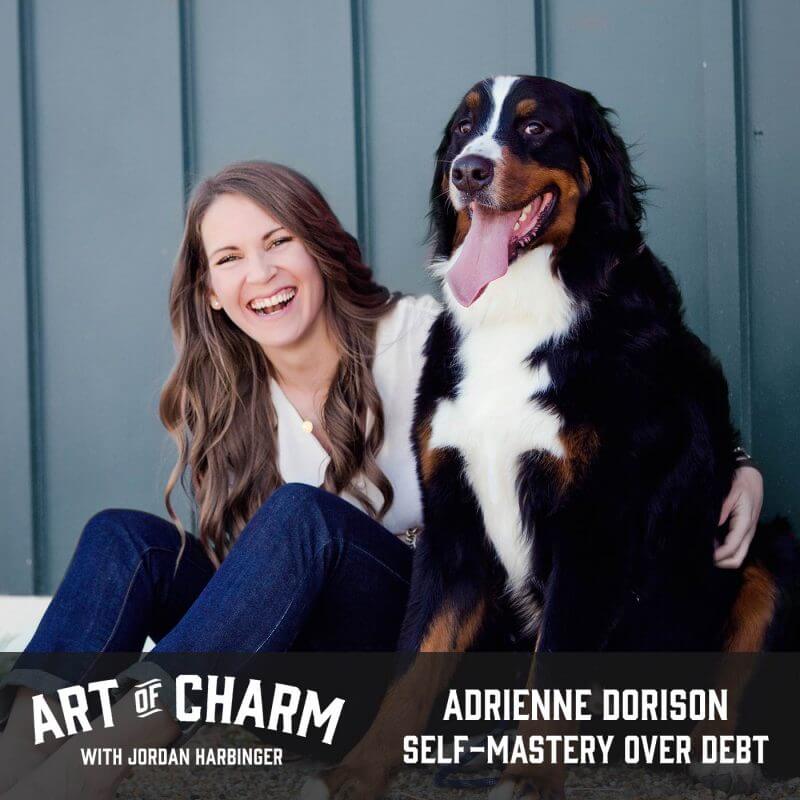Adrienne Dorison (@adriennedorison) ditched over $45,000 in student debt in less than six months; follow her advice here and achieve your own financial freedom.
The Cheat Sheet:
- Your beliefs about debt — and your credit score — don’t (and shouldn’t) define who you are.
- Having an attitude toward consumer debt as a normalized facet of modern living makes a lot of us suckers.
- Why is talking about sex less taboo than talking about money?
- Learn why creating an emotional attachment to money by using cash instead of credit is a good thing.
- What is a zero-based budget?
- And so much more…
[aoc-subscribe]
The average college graduate earns their degree through a combination of sleepless nights, hard work, and accumulation of a life-haunting debt that can seem as indelible as the scars from haze week. But even if the vast expense of higher education isn’t part of the equation, we modern consumers tend to carry some level of debt that holds us back from making our biggest, most fulfilling life plans.
In episode 465 of The Art of Charm, success strategist and money mentor, podcast host, and passionate dog-mom Adrienne Dorison talks to us about how she was able to settle her $45,000 (plus change) college debt in six months, and how you can apply her strategies to do the same and change your spending habits for a healthier relationship with money into the future.
More About This Show
These days, most people are in debt to some degree — quite literally if part of that debt is owed to a college education. If you count yourself as part of that statistic and you wish you could crawl out from under its shadow, then congratulations: you’ve already noticed that being indebted is not (or at least shouldn’t be) the natural state of things.
But if you’re taking debt as a fact of life, it means you’re putting off things you’d rather be doing for the sake of making minimum payments and slipping further into a self-perpetuating, high-interest quagmire. What’s a better normal: going on vacations, being able to take extended leave from work at will, starting your own business, and buying your own home, or making sure you’re satisfying the minimum payments on the stack of credit cards in your wallet every month (without making progress beyond pennies toward significant payback)?
If you’d rather follow a financial regimen that satisfies you and your family instead of the lending institutions of the world, then Adrienne Dorison has some solid advice that you can trust — because she’s been there, too. Once in debt that exceeded $45,000 — pretty average for most college graduates, it turns out — she was able to pay it off in six months rather than whittling it down over decades as is customary in our culture of debt normalcy.
Adrienne admits that she used to be embarrassed about her debt and credit score, which was compounded by another cultural “tradition” in America: the fear of talking about money. “Money talk is so taboo,” she says, “and it doesn’t need to be. It only suffocates our society even more when we don’t talk about it and we don’t help other people to learn from our mistakes.”
While she acknowledges that some debts might be considered reasonable for some people — such as financing for a home — others are probably not. But it really depends on your personal comfort level and, to a large degree, how you grew up around money.
“It’s just about figuring out how you relate to money, how much you want to be limited, and making sure you’re making the right decisions around that,” says Adrienne.
If becoming debt free sounds appealing, the first important step forward is believing it can be done. While this sounds obvious enough, you’ll be surrounded by enough naysayers who subscribe to debt normalcy that you might just be talked out of it. Going with the flow is easy, but resisting will take some discipline.
The next step is actually making the commitment to becoming debt free. You’re going from a casual interest in the idea and believing it’s possible to agreeing to do whatever it takes to make it possible. This involves taking a careful look at your expenditures from the past few months and formulating a budget — which means sacrifice.
“You have to take your head out of the sand,” says Adrienne. “You have to look at your previous bank statements, which is where people run away and they don’t want to talk to me after I say this! That’s because they’re in avoidance mode, and I know this so well because I was there. I thought that I had a budget just because I wasn’t overdrafting every month!”
She recommends looking over the past three months of statements and taking note of whatever unconscious spending patterns you fall into. This is where you can start making cuts, and you’ll likely be surprised at how much money can be put toward paying off your debt by not spending it on impulse purchases.
“[I calculated] how much money could I pour onto the debt outside of my survival expenses: food, roof over my head, some insurance,” says Adrienne. “Things like that. I was putting all of the rest of the money onto those debt repayments.”
Listen to this episode of The Art of Charm in its entirety to further understand how to take back control over your money, how to be intentional with your spending, and why formulating a zero-based budget is the best way to make it happen.
THANKS, ADRIENNE DORISON!
Resources from this episode:
Adrienne Dorison’s website
The Art of Charm bootcamps
You’ll also like:
-The Art of Charm Toolbox
-Best of The Art of Charm Podcast
On your phone? Click here to write us a well-deserved iTunes review and help us outrank the riffraff!
